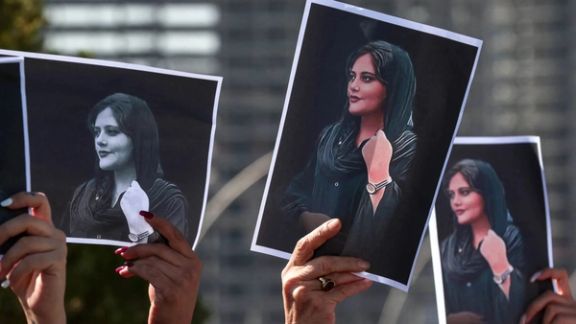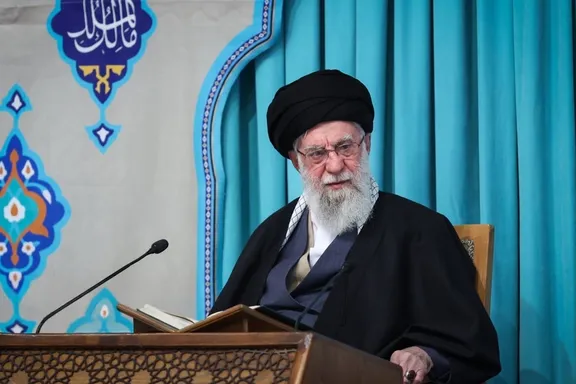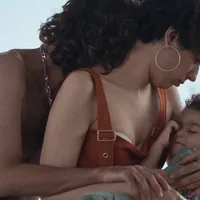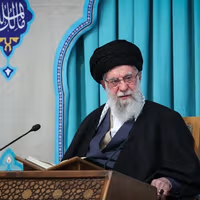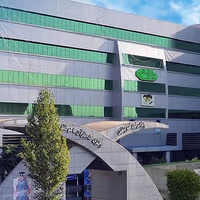Since September, Israel has targeted large portions of the group’s infrastructure, including weapons storage and production facilities, rocket launch sites, and key leadership figures. Among those killed in a series of precision airstrikes was long-time leader Hassan Nasrallah.
However, according to Reuters, US intelligence has shown that the group, designated a terrorist organization by countries such as the US and UK and others, has begun to rebuild, recruiting new fighters, rearming through domestic production and smuggling through Syria.
As Syria now faces domestic turmoil with the civil war rearing its head once more, that smuggling route is being ever more guarded by Iran, Hezbollah’s sponsor, which is sending fighters from Iraq and Afghanistan to push back opposition forces trying to dislodge Iran's ally Bashar al-Assad.
Syria has long been a pivotal route for Iran to fund and arm Hezbollah. Islamic Revolutionary Guards Forces (IRGC) also have outposts there. According to Arabic journal Al Majalla, Iran has 55 military bases in Syria and 515 other military points.
The Israeli military has said it is just 13 bases but says Iran has "appropriated Syrian defense assets". The Atlantic Council also cites camps which are essential to the IRGC such as Damascus International Airport, al-Tayfour Airport, Azraa Base, Sayeda Zeinab Base, al-Kaswa Camp, Zabadani Camp, and al-Qusayr Camp.
Amid a 60-day ceasefire brokered by the US and France, Hezbollah is prohibited from procuring weapons or parts, but ongoing activity has seen Israel carry out multiple air strikes on what it has called “terrorist infrastructure” amid the ceasefire, in which both sides have claimed multiple violations. On Monday, Hezbollah fired two rockets into Israel in what it called a "warning" amid tit-for-tat violations.
With a capacity estimated between 130,000 and 150,000 rockets, Hezbollah has been long ready for a prolonged conflict with its adversary, Israel.
Hezbollah will not struggle to find new recruits. At a memorial for slain leader Hassan Nasrallah, thousands came out to mourn the fallen leader, with much of the Shia population still dedicated to the group’s ‘cause’.
Nevertheless, Hanin Ghaddar from the Washington Institute has said that unlike in 2006, after the second Lebanon war, Hezbollah is at its weakest point and cannot afford to go back to war.
“Its strategy at the moment is to lay low and try to recover, which it seems to view as a multistage process,” she said, speaking on The Policy Forum on Monday.
“Hezbollah will presumably decry the Lebanese Army for allowing Israel to continue conducting airstrikes after the ceasefire with no response. Arguing that the weapons of the 'resistance' are Lebanon’s only means of fighting back against Israel, the group will push the next government to re-legitimize its possession of military arms by adopting the same loaded phrase that has appeared in past ministerial statements—namely, that Lebanon’s security is based on ‘the army, the people, and the resistance’.”
She says that Hezbollah has lost credibility, deterrence, most of its strategic weapons and commanders, and any semblance of its past victory narrative.
Unlike in 2006, money to fund Hezbollah is also not as readily available, Iran squashed by heavy global sanctions and a financial crisis. “This time, money is not as abundant in Iran, and the [Persian] Gulf states will no longer help [Lebanon] if Hezbollah is still in the picture. The group’s senior commander losses might also affect its role as Iran’s main proxy arm in the region,” she added, saying that Hezbollah has become a liability for Lebanon.
Matthew Levitt, also from the Washington Institute, said the ceasefire now presents new challenges for Tehran. “Hezbollah’s loss of so many strategic assets is a loss for Iran,” he said, speaking in The Policy Forum on Monday.
“Beyond near-term ceasefire diplomacy, the next [US] administration will need to lead an international effort to frustrate Iran’s efforts to rearm and re-fund its proxies. The international community can no longer sit back and consider the region calm when ceasefires take hold and Iran keeps arming terrorist groups to the teeth. The events of the past year—and again in Syria this past week—are proof of this logical fallacy,” he added.
Aware of the capacity to regroup, he said that getting to the route of the problem with Hezbollah requires addressing Iran.
“America’s core allies, including Israel, understand that degrading the capabilities of armed groups is no longer enough. Ultimately, they must address the threats posed by Iran, the malign actor who sponsors so many of these groups,” he said.
